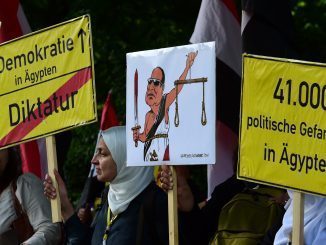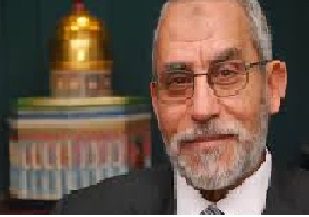
The official human rights council has met with heads of several human rights organizations that continue to face intense repression from the state. Some participants said dialogue without genuine political will for reform is just propaganda
The Egyptian government’s National Council for Human Rights on 10 March held a meeting with the heads of several human rights organizations, all of whom—both as individuals and organizations—continue to face intense repression from the state.
However, Mohamed Zaree, the director of the Egypt Program at the Cairo Institute for Human Rights Studies (CIHRS), said “Dialogue without genuine political will for reform is propaganda intended to mislead local and international communities about human rights progress in Egypt”
The participants’ concerns were underlined by several disturbing developments in Egypt over the past few days, including the executions of seven people.
Nearly all of the meeting’s civil society participants are prohibited from traveling or accessing their money due to their inclusion in Case 173/2011, the infamous NGO foreign funding case. They include Gamal Eid, whose Arabic Network for Human Rights Information was forced to shut down due to government attacks, and the Egyptian Initiative for Personal Rights’ Hossam Bahgat, who was convicted over a tweet criticizing electoral fraud in November.
They were joined by the Egyptian Commission for Rights and Freedoms’ (ECRF) Mohamed Lotfy. Lotfy’s wife, human rights defender Amal Fathy, saw her prison sentence for criticizing sexual harassment upheld in January. Four other ECRF leaders have been imprisoned since 2018 for defending human rights.
“Any dialogue without a genuine political will for reform is nothing more than a public relations campaign intended to delude the international and local communities into considering that a political breakthrough will occur,” said another meeting participant, Mohamed Zaree of the Cairo Institute for Human Rights Studies. “We can say that the human rights situation has not changed since the national strategy was announced, leading us to consider that there is no political will to respect human rights [in Egypt].”
Zaree and the other participants recommended several steps that the government should take if it is serious about addressing Egypt’s human rights crisis, including immediately releasing all jailed human rights defenders and ending the intimidation of others, closing Case 173/2011, and replacing the repressive NGO law.
The participants’ concerns were underlined by several disturbing developments in Egypt over the past few days, including the executions of seven people.
Four people were executed by the state on March 8 in connection with Case 513/2016, known as the Helwan Microbus Cell case, followed by three more on March 10 for alleged involvement in an attack on a Giza police station.
“Egypt is one of the top executioners in the world, and the number of executions is increasing yearly, mainly in cases of political violence,” said a Human Rights Watch representative. President Abdel Fattah al-Sisi’s government “has been instrumentalizing the judicial system to repress and punish opponents” through trials that often “lack basic due process and fair trial guarantees.”
In other judicial news, the lawyer of Strong Egypt Party President Abdel Moneim Aboul-Fotouh said that his client was unable to stand at his latest pretrial detention renewal hearing after suffering a herniated disc. Aboul-Fotouh has suffered multiple untreated heart attacks during his more than four years behind bars.
Better news came on March 9, when a terrorism court released eight defendants from five political cases, among them Ahmed Yousry Ghaly, a former Dostour (Constitution) Party member who was arrested in 2020 over a Facebook post.
The same day, Juhayna founder Safwan Thabet and his son, Seif Thabet, were allowed to see their dying wife and mother for five minutes before being returned to solitary confinement.



